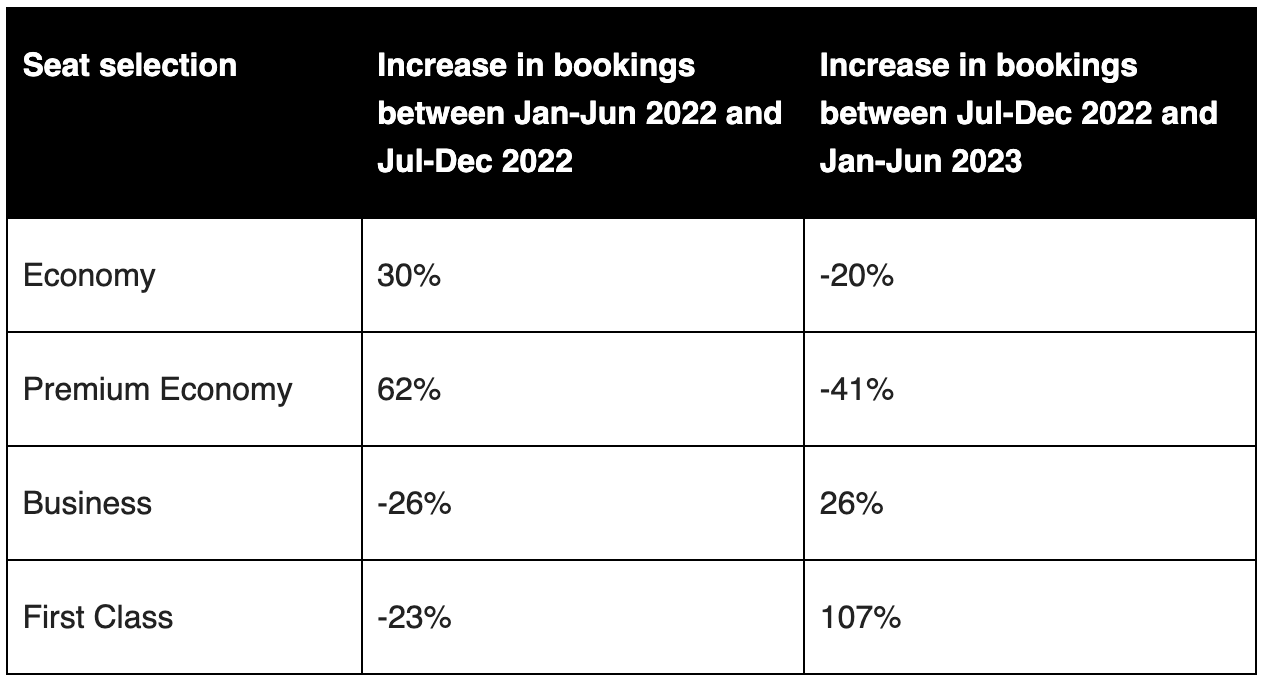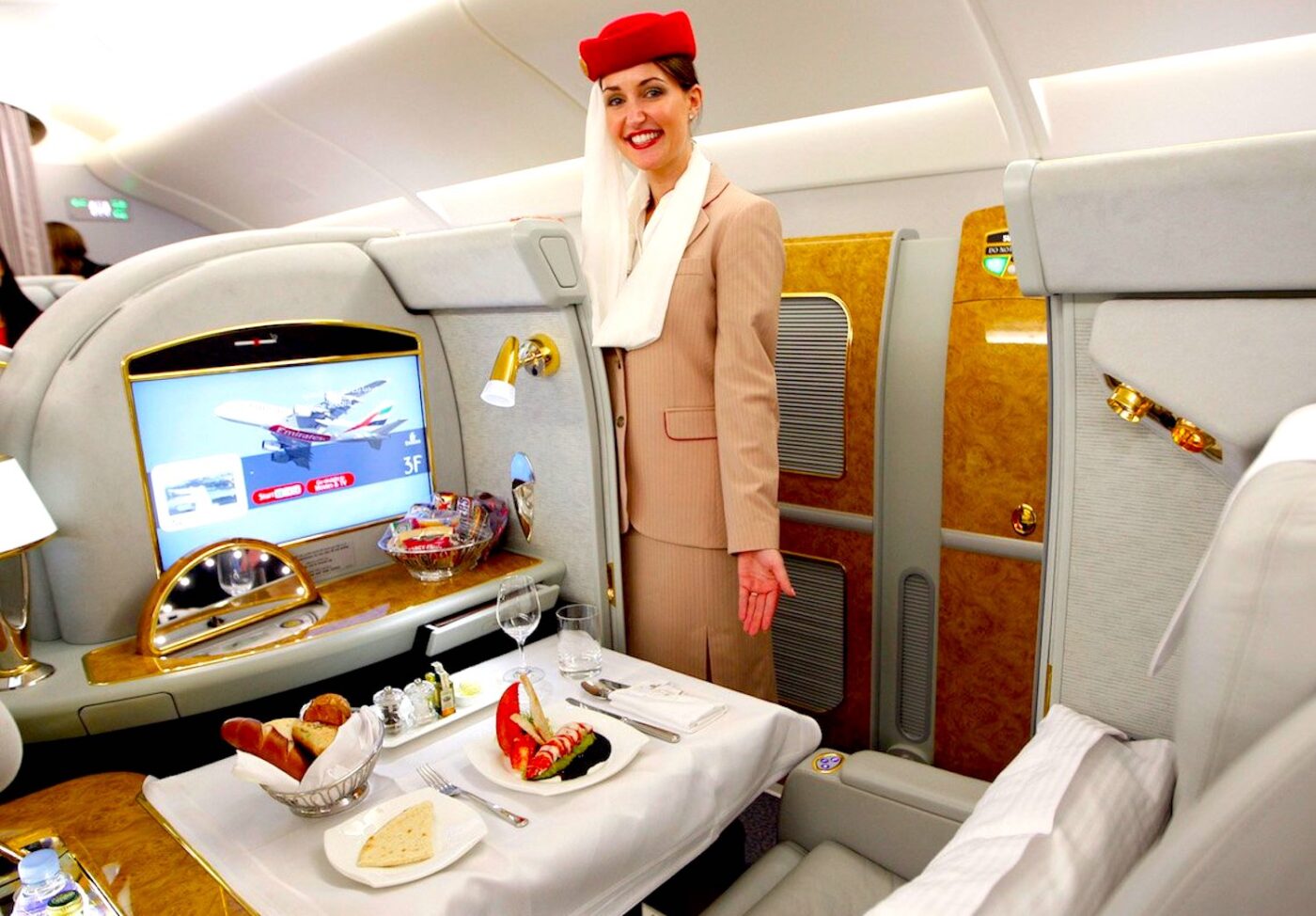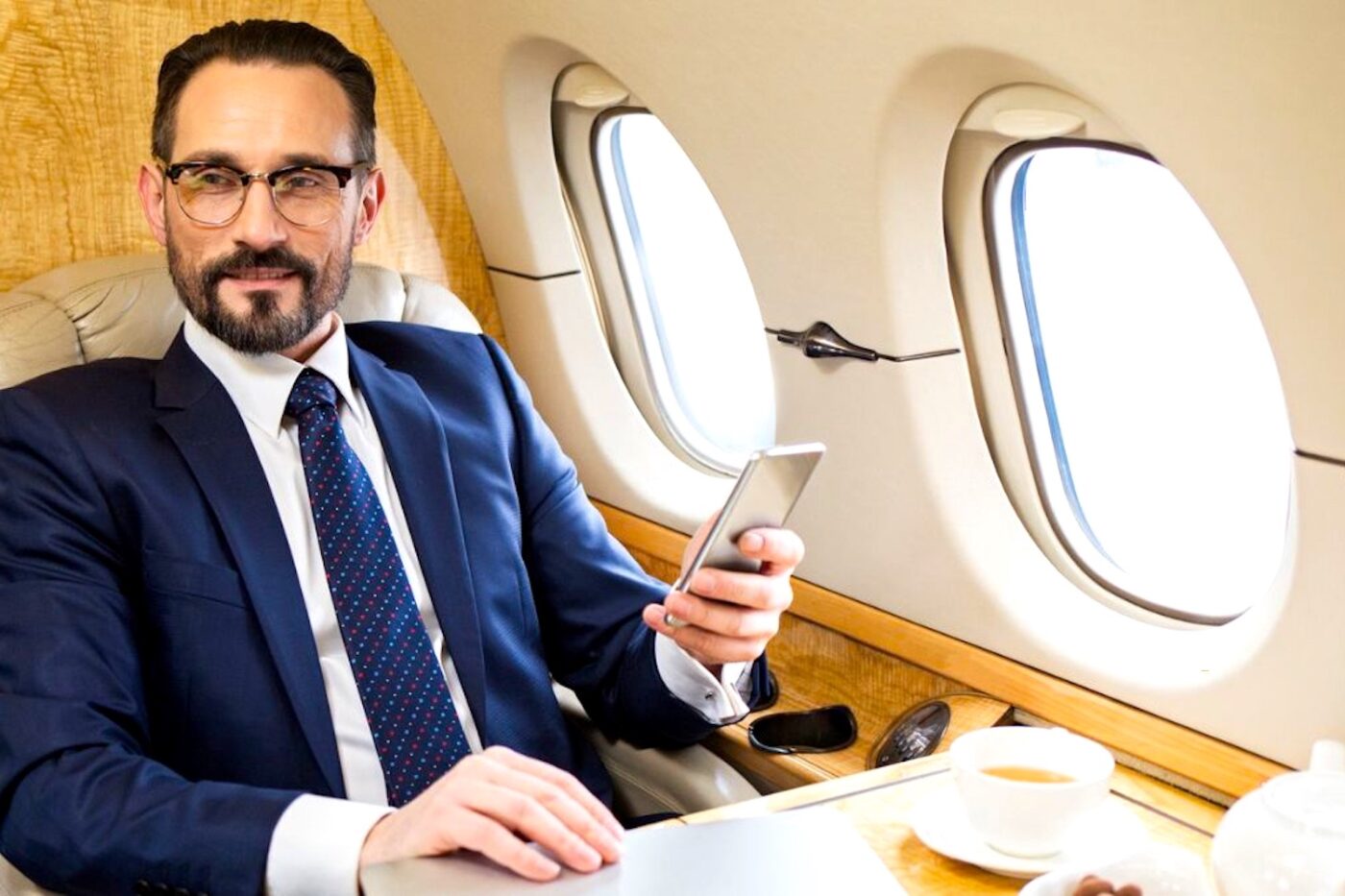In a mind-boggling turn of events, new data analysis reveals that First Class travel has surged by a staggering 107% in 2023 compared to the previous year.
Flying in the face of news that Qatar Airways CEO thinks first class is ‘pointless’ and that premium economy is the new “money-making machine”, as well as the ongoing cost of living crisis that continues to bite for millions across Australia and the wider world, new data has revealed that bookings for the plane’s pointier end — where first and business class cabins are tucked away — have skyrocketed in the past twelve months.
First Class travel has surged by a staggering 107% in 2023 compared to the previous year and business class bookings have also seen a significant increase of 26%, while Premium Economy and Economy bookings experienced declines of 41% and 20%, respectively, according to newly released data from Corporate Traveller. This trend comes at a time when financial uncertainty and fears of a recession loom over the nation, with nearly half of Australian business leaders expecting a recession in 2023.
WATCH: First Class isn’t immune from Mother Nature’s fury…
Tom Walley, Corporate Traveller’s Australian-based Global Managing Director, acknowledges that the current climate is challenging, but he sees the data as a positive sign:
“There’s no doubt the economy is fragile, and a lot of people and businesses are feeling the pinch at the moment, but this data is a positive sign for our SME sector – the backbone of our economy. For many, flying isn’t a luxury, it’s a necessity for business success and survival.”
Tom Walley
While I’m genuinely very happy for people like Walley who interpret this news as a glowing greenlight for the business world and economy more broadly, I must confess that it didn’t stir the same warm and fuzzy feelings in me. The surge in First Class and Business bookings suggests a growing divide between executives and higher-ups who can afford luxury travel compared to the rest of the workforce; while the privileged few enjoy extravagant perks, workers at the lower end of the spectrum face ongoing financial uncertainty.
Furthermore, not only does this divide exist, but tales of unwelcome cuts to the day-to-day working experience of lower-paid employees make this divide one defined by C-suite greed. The Aussie Corporate — a social media account that serves as an anonymous confessional for Aussies working in major corporate businesses — has recently received slews of reports of large multinationals cutting the allocation of minor perks for their lower-level employees, such as free coffees or office party budgets while their seniors evidently face no such strain.

While coffees and office parties aren’t the be-all-and-end-all for businesses, this pattern does have a ripple effect on the well-being of employees. Don’t just take my word for it: the Gartner HR Survey shows a looming well-being crisis for Aussie employees, while HCA Mag reports that less than half of Australian employers have a “high level” of employee satisfaction. To be clear, I’m not out here suggesting that if free coffees run wild and office parties become a weekly occurrence this will all be magicked away; I’m suggesting that if there’s money in the coffers for first class travel, maybe employers should look at spending it elsewhere and a little more wisely.
Next up, I think we have to more closely examine Walley’s claim that pointy-end air travel is a “necessity” for business. First, the environmental impact of First Class and Business travel massively outweighs that of Economy or Premium Economy alternatives, with the provisions and space required for each seat in the upper two classes making them significantly more carbon-intensive, up to nine times so, according to On Carbon. As the world grapples with the climate crisis, it’s disappointing to see corporate travellers opting for the most environmentally harmful travel options.
Moreover, we need to consider whether air travel is necessary in the first place — regardless of cabin class — in an era where technology enables virtual communication and remote work. And before anyone accuses me of being a ‘snowflake’ tree-hugger, this makes sense from a cashflow perspective too: encouraging businesses to embrace digital communication methods and reduce reliance on frequent and luxurious business travel would benefit both the environment and their bottom line.

Ultimately, what this data represents is the ongoing prioritisation of short-term profit-puffing over long-term, sustainable business practices. While I understand that air travel can be a welcome boon to business dealings if not necessarily a “necessity”, I think it’s important to call into question the self-perpetuating cycle of airlines providing premium products at exorbitant prices and business people indulging in the added luxury just because they can do so safe in the knowledge that the cost will be written off come end of financial year.
What can’t be written off is the damage being done to both the planet and the working practices of people who are likely to never join the hallowed ranks of business’ upper echelons, and so next time you’re scheduled to head on a flat-bed, champagne-soaked business trip I urge you to ask yourself: what’s the real cost of this journey?
